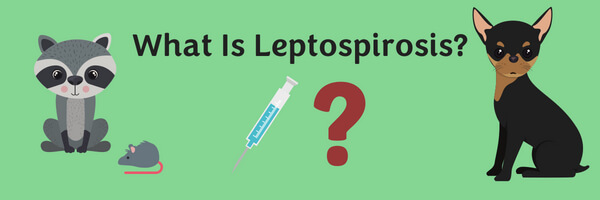 Leptospirosis is a bacterial disease, present worldwide, that can infect both people and animals. It prefers to live in water and warm, moist environments. Leptospirosis is more common in dogs; it is quite rare in cats.
Leptospirosis is a bacterial disease, present worldwide, that can infect both people and animals. It prefers to live in water and warm, moist environments. Leptospirosis is more common in dogs; it is quite rare in cats.
Pets can catch Leptospirosis by drinking from infected water (rivers, lakes, streams, or stagnant water sources), walking in areas frequented by wildlife, and contact with rodents. It can be transferred through mucous membranes and wounds that come into contact with infected urine or urine-contaminated substances (e.g. water, food, soil, etc.), ingestion of infected animal carcasses, or a bite from an infected animal. It can remain viable for months in the right environments.
Animals that can be infected include dogs, rats, cattle, pigs, skunks, opossums, rats, mice, voles, raccoons, and of course, humans. Many of these animals can carry and transmit the organism without getting sick. Cases of Leptospirosis are increasingly common in urban environments, often due to the presence of rats and raccoons. The infections are most often seen in the late summer into fall, but can be seen any time after heavy rains or flooding.
Preventing exposure to Leptospirosis can be done in several ways. Avoid contact with wildlife around your home. Keep pet food in tight storage containers and don’t leave food or water outside, to prevent attracting rodents or other wild animals. Control of the rodent population around your home is important, but also be careful not to expose your pets to toxic rodenticides.
Infected patients commonly present with lethargy, inappetance, vomiting, diarrhea, jaundice, or changes in thirst and urination. Leptospirosis primarily targets the kidneys and liver. Treatment consists of hospitalization for medication, I.V. fluids, and supportive care all of which can be costly. The prognosis with treatment varies, depending on the severity of illness when recognized.
Veterinarians recommend vaccinating for Leptospirosis based on your pet’s risk of exposure. Puppies may receive the vaccine as part of their initial immunization series. Healthy adult dogs can start the vaccine series any time it is deemed appropriate. The vaccine we recommend covers four of the most common strains of Leptospirosis and is given 2-4 weeks apart. The vaccine is then administered yearly to maintain immunity; however, if the vaccine becomes overdue, the vaccine series may have to be repeated.
The Leptospirosis vaccine we recommend has been studied and has not been shown to result in more adverse reactions than any other vaccine, but if you have questions about vaccine reactions, this should be discussed further with your veterinarian.
Erin West, DVM
Green Lake Animal Hospital
